Construct Legal is excited to announce our webinar Jack of All Trades: Are Owners Responsible for Safety for Everyone and Everything on a Project? on Friday, January 19, 2024 at 10:00 AM EST.

-
Jack of All Trades: Are Owners Responsible for Safety for Everyone and Everything on a Project?

CLICK HERE TO READ THE FULL ARTICLE »
-
Volunteer Spotlight: Faren Bogach

Faren Bogach (LLB’07) is founder and lawyer at Construct Legal in Toronto. She started as a commercial litigator before finding construction and infrastructure law. “I founded Construct Legal to focus on client outcomes instead of the billable hour,” she says.
CLICK HERE TO READ THE FULL ARTICLE »
-
Owners need to be diligent about safety: The Supreme Court of Canada releases its much-anticipated decision in R. V Greater Sudbury (City)
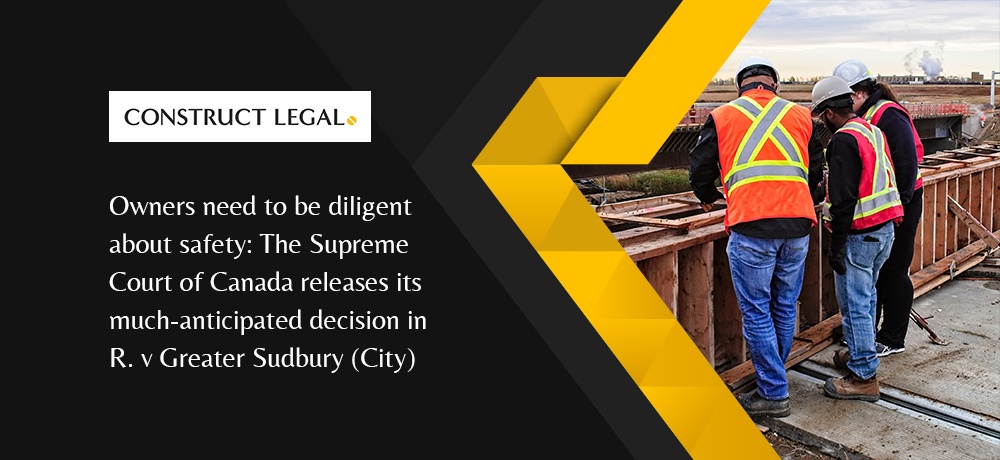
Key Takeaway
An owner may have the responsibilities (and corresponding liabilities in the event of an accident) of an “employer” under Ontario’s Occupational Health and Safety Act (“OHSA”), even when the owner has retained a contractor to perform the actual work. This can be true even where the owner does not have direct control of the work, but this element of control may be relevant to the owner’s “due diligence” to argue that it took all reasonable steps in the circumstances.
CLICK HERE TO READ THE FULL ARTICLE »
-
If it’s Portable, is it Lienable? – A Portable Classroom Can Be an “Improvement” under the Construction Act

In the recent decision of On Point Ltd. v Conseil des Écoles Catholiques du Centre Est et al., the Ontario Superior Court of Justice held that portable school classrooms (or “portables”) can constitute improvements within the meaning of the Construction Act.
CLICK HERE TO READ THE FULL ARTICLE »
-
Happy Thanksgiving to all of our followers!

As we approach our second anniversary, we are thankful that you are part of our firm’s foundation.
CLICK HERE TO READ THE FULL ARTICLE »
-
Don’t Wait to Arbitrate – Undue Delay in Enforcing Arbitration Clauses in Construction Contracts
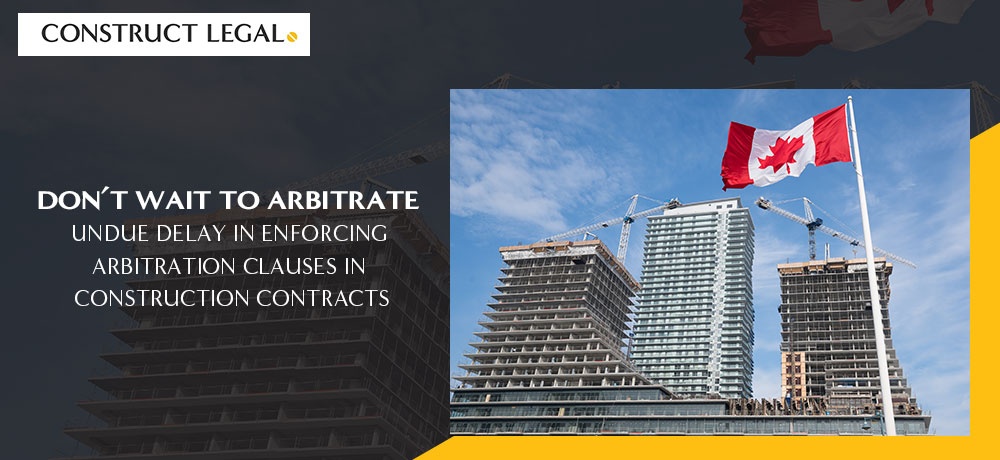
If you are a party in a construction dispute and your contract includes an arbitration clause, the Ontario Superior Court of Justice decision of Bombino v Serendipity Homes (“Bombino”) suggests that you should not wait to enforce the arbitration clause.1
CLICK HERE TO READ THE FULL ARTICLE »
-
Interim Means Interim – The Court’s Treatment of a Construction Adjudication Determination as Evidence
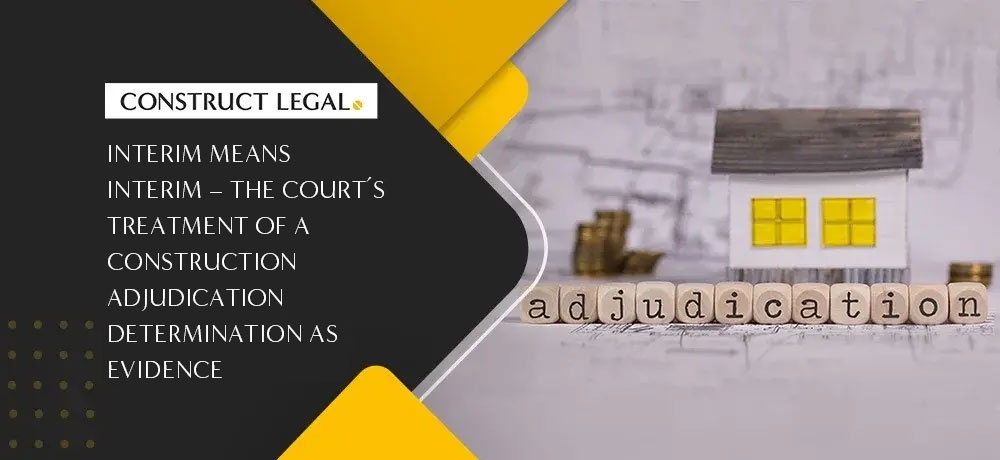
The case law on construction dispute interim adjudications in Ontario continues to develop. In the recent case of Arad Incorporated v Rejali et al (“Arad”),1 the court provided helpful guidance to the construction and legal industries about how an adjudicator’s determination may be treated by the court as evidence.
CLICK HERE TO READ THE FULL ARTICLE »
-
Faren Bogach is a panelist at the Women Lawyers Forum on June 21

Eating lunch at your desk on June 21?
CLICK HERE TO READ THE FULL ARTICLE »
-
Vote early, vote often

Faren Bogach has been nominated for Canadian Lawyers Top 25 most influential lawyers of 2023 in the Changemaker category.
CLICK HERE TO READ THE FULL ARTICLE »
-
Do you ever wonder what it might be like to take a leap of faith and leave Bay Street to join a start-up firm?

If you do, or have other questions about a career in construction law, come listen to Paul Conrod who is one of the speakers at the OBA program Career Paths in Construction. There is an all-star line up of current and former lawyers who practice(d) in construction.
CLICK HERE TO READ THE FULL ARTICLE »
-
Superior Court of Justice CaseLines – Quick Tips

The Superior Court of Justice recently updated their CaseLines Quick Tips page, including outlining how to link between documents.
CLICK HERE TO READ THE FULL ARTICLE »
-
Notice the Notice Requirements in Construction Contracts
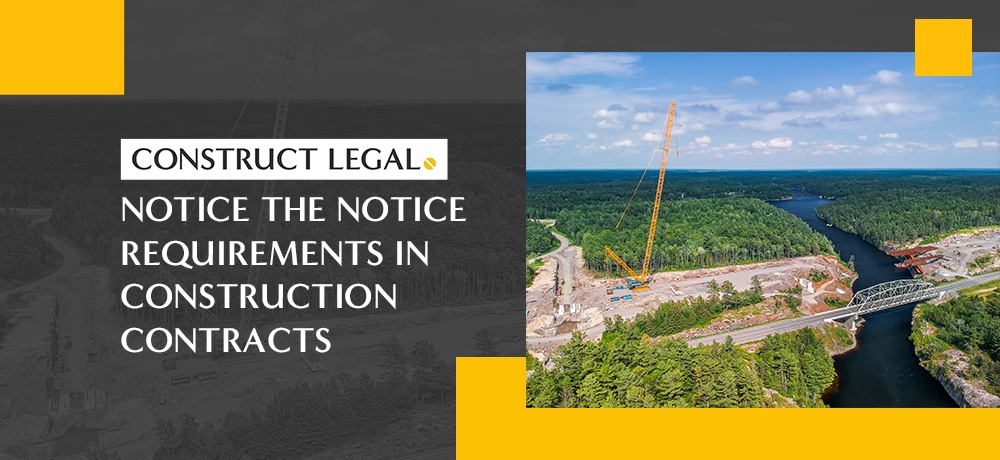
Notice requirements in Ontario-based construction contracts are strictly interpreted by the courts. With few exceptions, a failure to strictly comply with a notice requirement can be used as a complete bar to otherwise valid claims for costs or time. Because of this, it is essential that parties to construction contracts take the time to assess what their notice obligations are before a dispute arises.
CLICK HERE TO READ THE FULL ARTICLE »
-
Get Your Priorities Straight – What is the extent of lien claimants’ priority over mortgages?

The first decision of 2023 from the Court of Appeal for Ontario deals with the priorities between construction liens and building mortgages when a developer becomes insolvent.
In an insolvency situation, there are often many creditors seeking to recover from a limited pool of assets and determining priorities can be complex. This is also true for construction projects. Contractors, subcontractors, trades, and suppliers all need to know their rights (and limitations) on collecting for services and materials from an insolvent developer.
CLICK HERE TO READ THE FULL ARTICLE »
-
Speaking at the Managing Risk in Construction Contracts & Projects Conference

Want to learn more about the art of construction contract negotiation? Join Faren Bogach, Joshua Strub and John Dowse on February 22 at 1:00 pm. See the flyer for a 10% discount.
CLICK HERE TO READ THE FULL ARTICLE »
-
Court Briefs: A New Way (for lawyers) to Serve Documents (Form 16B.1)
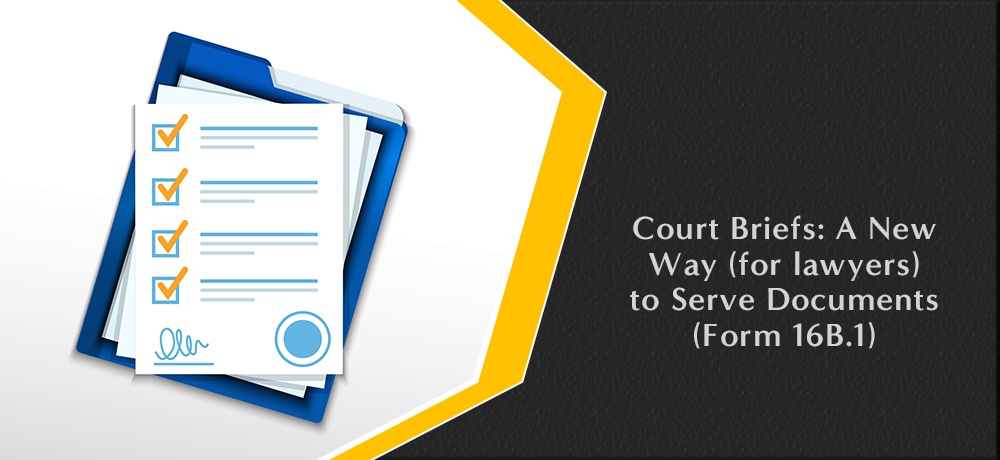
A recent amendment to the Rules of Civil Procedure (Rule 16.09(1.1)) allows for a lawyer to prove service of a document by way of a Lawyer’s Certificate of Service (Form 16B.1) if the lawyer served the document or caused it to be served and is satisfied that service was effected. In cases such as this, Form 16B.1 replaces Form 16B Affidavit of Service and can be used as proof of service when filing documents with the Ontario Superior Court of Justice.
CLICK HERE TO READ THE FULL ARTICLE »
-
Information is power: know your right to information under the Construction Act

There are good reasons to exercise your rights under section 39 of the Construction Act. Some of the reasons include:
- You need information to properly preserve your lien (like the correct names of the parties, or whether a landlord paid a tenant allowance);
- You want to know if there is a labour and material bond to secure payment; or,
- You want information about the statement of accounts to see if your work has been paid by the owner, or whether there is sufficient holdback for your lien.
CLICK HERE TO READ THE FULL ARTICLE »
-
Compare and Contract: CCDC2 and CCDC 5A

CCDC contracts are ubiquitous in the construction industry. They are used for all manner of different project types and sizes, so much so that familiarity with these documents is almost becoming required to do business in Ontario’s construction industry.
CLICK HERE TO READ THE FULL ARTICLE »
-
When Does a Limitation Period Run for a “Running Account”?

An important deadline for any litigation is the limitation period, which is the final date by which a lawsuit for specific a claim must be commenced. The limitation period is important because, if missed, the plaintiff may be barred from ever bringing a lawsuit to seek recovery of that claim.
CLICK HERE TO READ THE FULL ARTICLE »
-
ONE YEAR

One year ago today, Construct Legal opened during a snow storm that pretty much shut down Toronto. It was a memorable first day.
It has been a journey filled with highs, lows, and everything in between. It hasn't been easy, but it has been rewarding.
CLICK HERE TO READ THE FULL ARTICLE »
-
ADJUDICATION BASICS
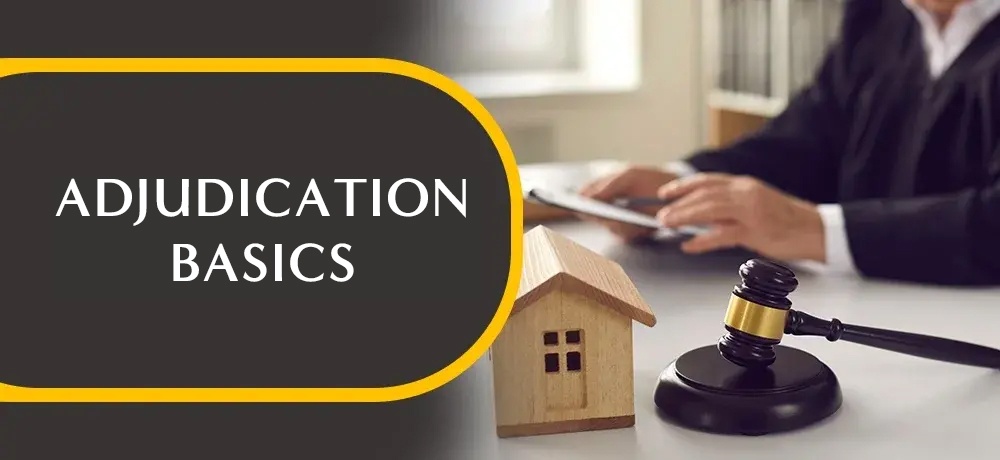
Adjudication is a new method of dispute resolution contained in the Ontario Construction Act. It allows parties to a construction contract to enforce a right of payment without going to court.
See the fact sheet Prompt Payment & Adjudication 101 to determine if your contract qualifies for adjudication.
CLICK HERE TO READ THE FULL ARTICLE »



















